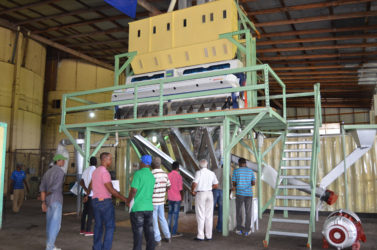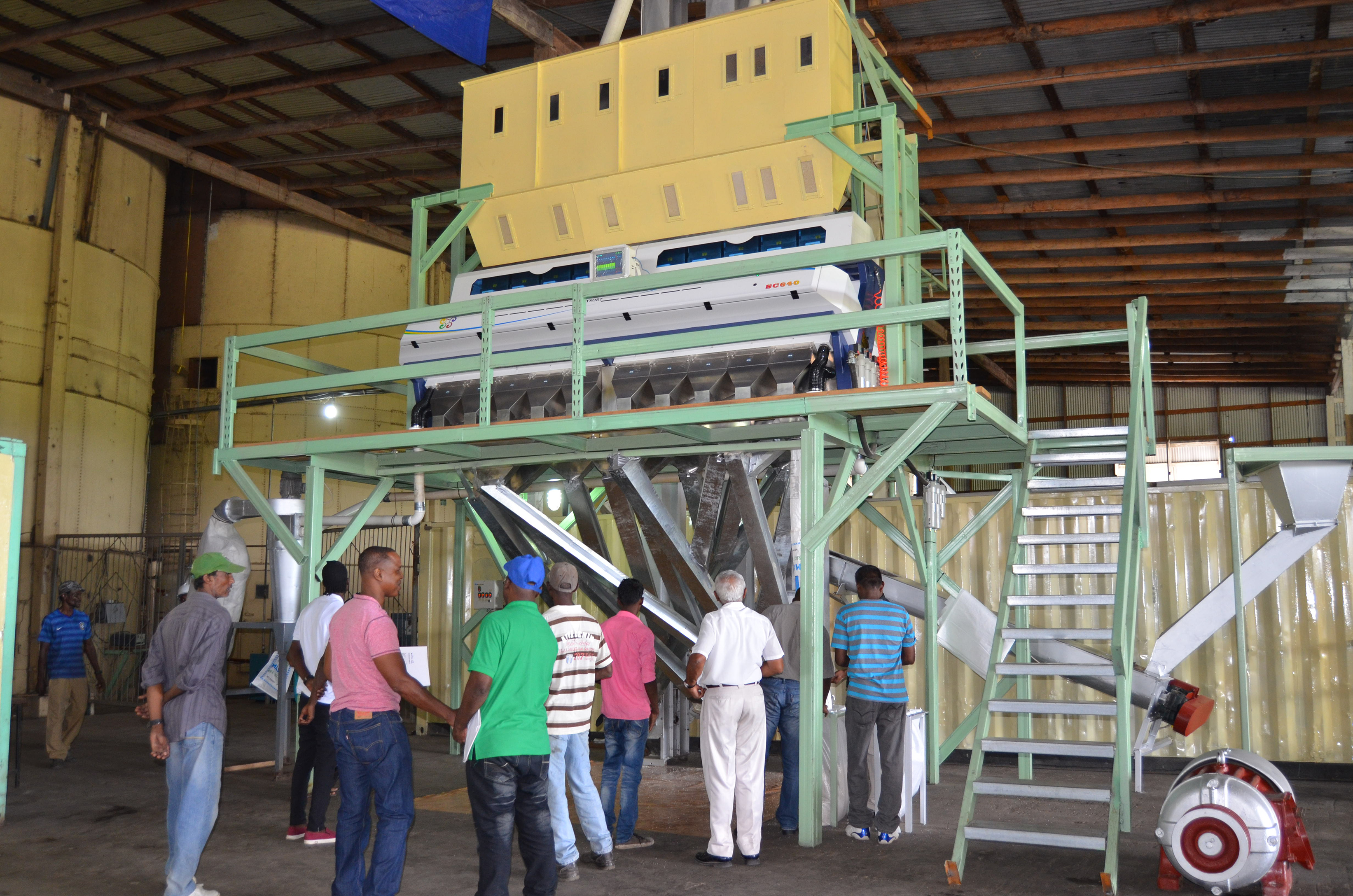The Ruimzeight Rice Processors Inc. (RRPI), a member of the Alesie Group of Companies, yesterday commissioned a state-of-the-art Rice Colour Sorter machine that can detect impurities with its “eagle eye technology.”
The commissioning, which was done in collaboration with the Chinese company Anhui Jiexun Optoelectronic Co. Ltd. (AJOCL), preceded a demonstration of the colour sorter.
Turhane Doerga, head of the Alesie group, said the high-tech machine will benefit the local rice industry to maintain and upgrade its quality standards.
He said it would also allow the company to ship high-end products to the EU with Hazard Analysis Critical Control Point qualifications.

He told the gathering at the launch, which included the President of the Rice Producers’ Association (RPA) Leekha Rambrich, representatives of the Guyana Rice Development Board, rice farmers and millers, that the rice colour sorter, is a third generation machine, created by the largest manufacturers of such equipment.
Doerga recalled that in 1983, Alesie bought its first sorter machine at a high cost US$125,000. That machine was developed in London and had six channels.
“Only a select group of a high end market could have rice which was colour and electronically sorted,” he noted.
He referred to the machine as the “mother of all colour sorters,” with the capacity to “process 35,000 tonnes or 70,000 pounds of rice in an hour while checking every single corner and if it’s not good it’s ejected.”
He said the equipment “puts Guyana in the upper class of rice production while the colour sorters that were available in Guyana before were only used for parboiled rice, which was never exported to EU.”
According to Doerga, “We only produced 1M tonnes of paddy which is 500,000 tonnes of rice. If the rice is produced properly at a high end, we can be rice producers compared to Japan, where the rice is US$1,100 per tonne or like Europe where it is $1,100 Euros per tonne.”
During his presentation, the machine made a sound, prompting Doerga to comment: “The machine thinks for itself too… it processes data. While it is on and it sees that the screens are not clean, the wiper goes and cleans it.”
The high tech machine can also be controlled via smart phones and if the sorting is not done properly, the company can send the manufacturers a “WhatsApp message and they can get into the machine from China and diagnose it.”
David Zhang, sales manager of AJOCL, who came from China with an engineering team, said the machine can be controlled in different countries using smart phones, providing there is high speed internet connections.
It can also be controlled via remote devices within 100 meters. Local technicians were also trained to operate the equipment.
Zhang said too that the high performance LED optical system design and light control technology ensures it is maintenance free and reduces energy consumption by 35%.






